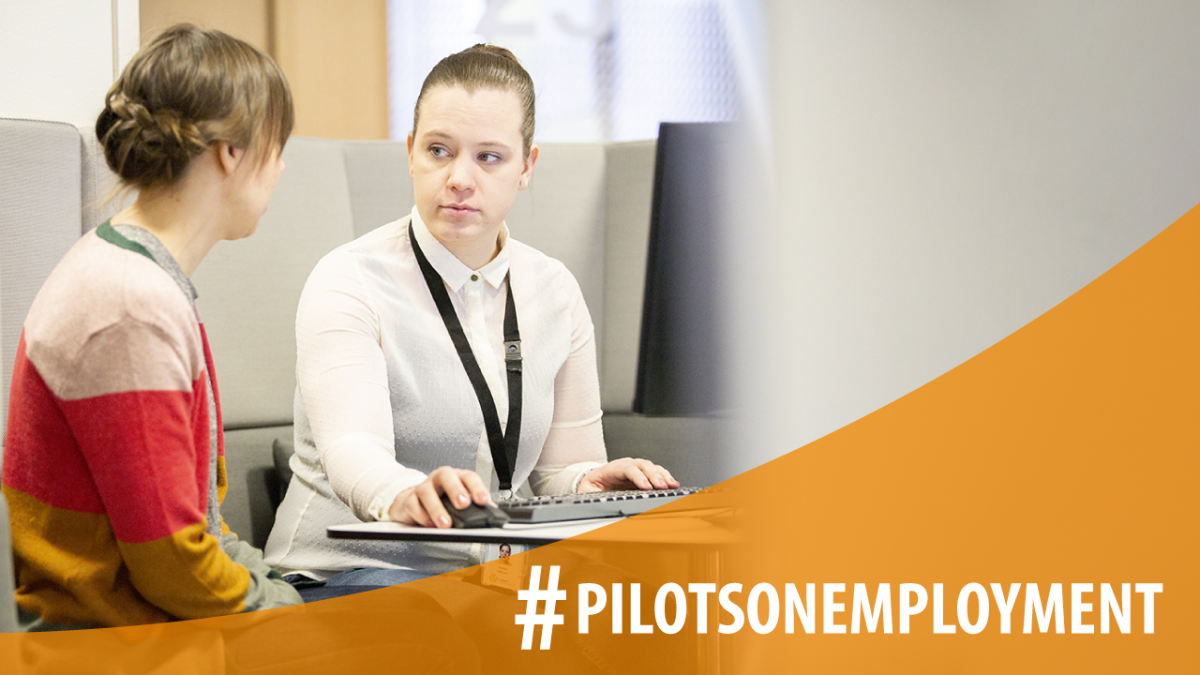Local government pilots on employment combine state and municipal resources to boost employment – Pilots to start in March 2021

The local government pilots on employment will begin on 1 March 2021. During the pilots, certain tasks of TE Offices will be transferred to local governments. The pilots aim to increase the effectiveness of employment services by integrating central and local government resources, skills and services. A total of 25 areas and 118 municipalities will participate in the pilot projects.
The President of the Republic approved the Act on municipal experiments to promote employment (Laki työllisyyden edistämisen kuntakokeilusta) on 30 December 2020. The Act will enter into force on 1 March 2021, and pilots will run from 1 March 2021 to 30 June 2023.
The pilots aim to increase employment among unemployed jobseekers and to direct them to training and education more effectively. Another objective is to create new solutions to ensure availability of skilled labour. The purpose of the pilots is, in particular, to improve access to the labour market by the long-term unemployed and those in a more vulnerable position.
“The pilots will integrate employment, education, social and health services more closely together. Many unemployed jobseekers need multi-sectoral services and comprehensive personal support. With the help of the local government pilots, such services can be offered more extensively and to more people,” says Minister of Employment Tuula Haatainen.
Instead of a strict service model, municipalities can develop services based on the needs of jobseekers and employers in their area. The participating municipalities will arrange pilot projects to test different ways of providing employment services and to identify best practices for renewing service structures. The Government will decide on a permanent structure for employment services during its term.
“The state and municipalities have a strong common interest in promoting employment. The new Act provides an opportunity to improve and develop cooperation between the state and municipalities and between municipalities. I encourage all participants to cooperate and share information as that will enable us to make swift use of best practices. The aim is to utilise the results of these pilots when we plan the service structure of the future,” Haatainen adds.
About 230,000 current TE Office customers will transfer to services organised by municipalities
During the local government pilots on employment, municipalities will take responsibility for around 230,000 TE Office customers, which accounts for 36% of all TE Office customers. Of all unemployed job seekers, 50% will transfer from TE Services to the pilots.
Unemployed jobseekers, persons in work placement and persons participating in employment-promoting services who are not entitled to earnings-related unemployment allowance will transfer to the pilot projects in the areas. In addition, all jobseekers under the age of 30 and all immigrants and foreign-language speakers who are either unemployed, in work placement or in employment-promoting services will transfer to the pilots. The respective pilot area will be based on the person’s municipality of residence.
Municipalities participating in the pilot projects
New tasks of local governments
During the pilot, the participating areas would be responsible for providing information, advice and services to customers to promote employment; tasks involved in the granting of certain discretionary benefits; and issuing certain employment policy statements.
The legislative changes do not affect employers who are customers of TE Offices. TE Offices will continue to provide employer and business services in the pilot areas, but they will cooperate closely with the municipalities in the coordination of employer services. The municipalities participating in the pilots can publish and share information about open vacancies according to the employer’s instructions and introduce suitable jobseekers to the employers.
The Regional State Administrative Agency for Western and Inland Finland will monitor the pilots nationally. The Regional State Administrative Agency has the power to address any deficiencies or shortcomings in compliance with the Act.
Local government pilots to be monitored through statistics and impact assessment
The pilots aim to provide information on the effectiveness of combining state and municipal funding, skills and customer service.
Continuous statistical monitoring and a joint impact assessment by the Government will be used to monitor the pilots. The monitoring will provide information about the development of employment and the use of employment services in the pilot areas. Monitoring data will be used as a tool for peer learning and coaching, and it will be available to the public. The application period for the assessment study for researchers is currently ongoing and the preparation of the study will begin in February 2021. The first interim report on the local government pilots will be submitted in autumn 2021.
Preparation of amendments required by Parliament in progress
At the time of the adoption of the Act, Parliament required that the Government prepare provisions for the broader transfer of tasks related to unemployment security from TE Offices to the pilot areas. Parliament also required that the Government prepare provisions enabling customers to transfer from the pilot area to the TE Office. The legislative drafting at the Ministry of Economic Affairs and Employment has already began. The amendments currently under preparation will not affect the starting date of the local government pilots.
Inquiries:
Piia Rekilä, Special Adviser to the Minister of Employment, tel. +358 295 064 115
Tanja Ståhlberg, Chief Specialist, Ministry of Economic Affairs and Employment, tel. +358 295 047 025
Local government trials on employment on the TE Offices website:
Press release, 27 August 2020: Government proposes to expand the local government trials on boosting employment
Press release, 4 June 2020: Government proposal on local government trials on boosting employment